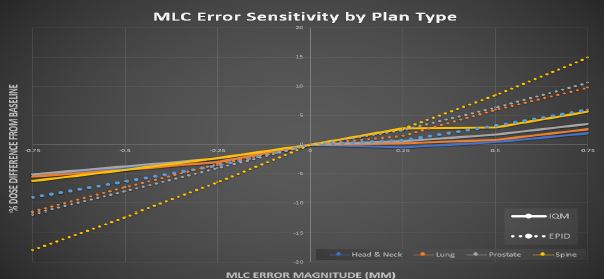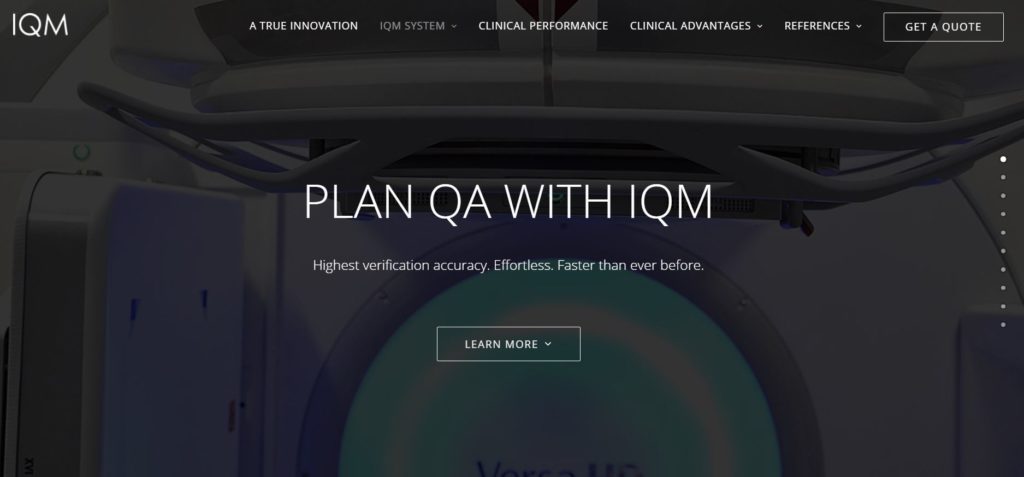This spring, clinical physicists at the renowned Vanderbilt University in Nashville, Tennessee compared QA results from the IQM System against their current Portal Dosimetry System. They evaluated a variety of highly complex treatment plans as well as the error sensitivity of each system, and presented their results as a poster at the 2019 Annual AAPM conference in San Antonio, Texas.

The clinical physics team used 10 retrospective VMAT plans with a total of 24 fields, including 3 head & neck plans, 2 lung SBRT plans, 3 prostate plans, and 2 spine (SBRT) plans. Eight (8) MLC error plans were created for each of the original VMAT plans.
The team evaluated the MLC error sensitivity using the cumulative signal difference between the baseline and error-induced measurements for IQM, and applied. Gamma analysis as the evaluation tool for measurements performed with the EPID.
The physics team found that the IQM calculation algorithm predicts the expected results with significantly higher accuracy than the Portal Dosimetry system.
They found that IQM is also more sensitive to small dose differences and provides more information regarding machine output than EPID gamma analysis

Gamma analysis with the EPID proved to be an ineffective method for MLC error detection.
More information about the poster presentation can be found on the AAPM webpage or click here to download the poster.
IQM provides unrivaled verification accuracy for every treatment technique from large field IMRT plans to the smallest SBRT/SRT techniques. IQM is the only verification system that becomes more sensitive with smaller segment sizes. IQM’s patented continuous spatial resolution provides unmatched sensitivity for even the smallest possible field size.

Click here to visit the IQM website and learn how IQM completely automates your pre-treatment QA procedures. Click here to calculate how much time IQM can save in your own clinical routine.
